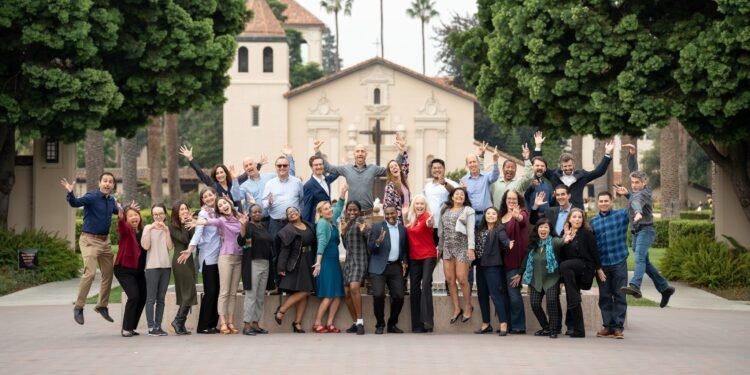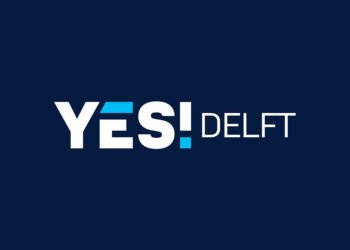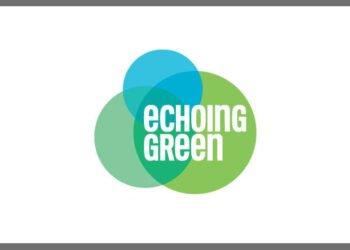Do you want to make a difference in the world? Miller Center for Social Entrepreneurship at Santa Clara University is a place for new ideas to solve worldwide problems. They help social businesses like Husk, NUCAFE, and Ayzh with guidance, money, and training to achieve their important goals.
The center offers funding and fast business growth programs, aiming to reduce poverty and save the environment. Be part of this effort for a brighter tomorrow with the Miller Center.
Overview of the Miller Center for Social Entrepreneurship at Santa Clara University
The Miller Center for Social Entrepreneurship at Santa Clara University has a mission. They want to accelerate entrepreneurship to end global poverty and protect the planet. To achieve this mission, they offer various programs and opportunities. These include business accelerator programs, fellowship opportunities, and courses for students interested in social entrepreneurship.
One of their programs is the Global Social Benefit Institute (GSBI) accelerator programs. These programs support businesses aiming to create positive social impact for people in economic poverty. The approach used is market-based. The Miller Center offers mentorship, guidance on impact and business models, operations, growth strategy, and fundraising to social entrepreneurs.
Success for the Miller Center is measured in different ways. They look at Net Promoter Scores, capital raised by program participants, and the number of people benefiting from alumni organizations post-program. By focusing on sustainable solutions like hybrid power, smart metering systems, fair deals for coffee farmers, and other innovative projects, the Miller Center empowers social entrepreneurs. Their goal is to help create dignified jobs, provide modern energy, clean water, healthcare, and education. This, in turn, promotes human dignity and livelihoods globally.
With structured content, volunteer mentors, and comprehensive support, the Miller Center ensures that social entrepreneurs can thrive. They aim to make a positive impact on humanity through their work.
Impact of Miller Center for Social Entrepreneurship on Social Change
Accelerating Entrepreneurship
The Miller Center at Santa Clara University helps entrepreneurs by offering programs and fellowship opportunities. They give structured content, mentorship, and funding guidance to develop impactful models for global challenges like poverty, clean water, healthcare, education, and dignified jobs.
The center focuses on human dignity and livelihoods, empowering entrepreneurs to create sustainable solutions benefiting humanity and the planet. Their GSBI accelerator programs drive positive social impact with a market-based approach, emphasizing Silicon Valley principles of innovation.
Through mentor expertise and investment asks, the center assists entrepreneurs in developing growth strategies and securing funding. Success is measured by Net Promoter Scores, capital raised, and the impact on communities by alumni organizations after the program.
By accelerating entrepreneurship with a focus on social benefit, the Miller Center is leading the way in fighting global poverty and promoting dignified livelihoods for all.
Addressing Global Poverty
Social entrepreneurship is important for addressing global poverty. It promotes innovative solutions and sustainable livelihoods.
The Miller Center at Santa Clara University in Silicon Valley supports social entrepreneurs. They focus on creating positive social impact in areas like modern energy, clean water, healthcare, education, and dignified jobs.
Through programs like the GSBI accelerator, social entrepreneurs receive mentorship and guidance on impact and business models. They also get support in fundraising.
Partnerships between social entrepreneurs and organizations are crucial. They drive impact and create sustainable solutions.
By using mentor expertise, structured content, and funding opportunities, partnerships can lead to impactful ventures that benefit humanity.
Success is measured by metrics such as net promoter scores, capital raised, and the number of people benefited by alumni organizations post-program.
Social entrepreneurship not only helps with global poverty but also promotes human dignity and innovation for a better world.
Protect the Planet
Individuals and organizations in social entrepreneurship and business accelerator programs collaborate at the Miller Center for Social Entrepreneurship in Santa Clara University.
They work together to reduce carbon emissions and protect the planet. Social entrepreneurs use innovative strategies like hybrid power solutions and smart metering systems.
These efforts promote sustainable practices. For instance, social enterprises help coffee farmers get fair deals, benefiting both farmers and the environment.
Mentorship and fellowship programs support these entrepreneurs in focusing on human dignity, livelihoods, clean water, healthcare, education, and job creation.
These initiatives align with Silicon Valley principles to create positive social impact, particularly in addressing economic poverty.
Through structured content and volunteer mentors, program participants receive in-depth support to scale sustainably.
Social entrepreneurs receive funding support and growth strategies, making a difference in protecting the planet for future generations.
Support Offered by Miller Center for Social Entrepreneurship
Professional Training and Coaching
The Miller Center for Social Entrepreneurship at Santa Clara University provides professional training and coaching for social entrepreneurs. This support can greatly benefit individuals aiming to address global poverty or environmental concerns.
One of their key programs is the Global Social Benefit Institute accelerator programs. These structured programs offer mentorship on impact and business models, operations, growth strategies, and fundraising.
Executive mentors play a crucial role in guiding entrepreneurs towards developing sustainable solutions. These solutions can span various sectors like modern energy, clean water, healthcare, education, and dignified jobs.
The focus is on creating positive social impact through a market-based approach that ensures fairness for all stakeholders. The programs prioritize humanity and dignity while aiming to accelerate entrepreneurship in Silicon Valley with a strong emphasis on social benefits.
Success is measured through metrics like Net Promoter Scores and capital raised. Through these programs, the Miller Center has demonstrated its ability to drive significant change and uplift communities globally.
Executive Mentors for Social Enterprises
Executive mentors at the Miller Center support the growth of social enterprises.
They provide mentorship, guidance on business models, operations, and growth strategies.
These mentors bring specific skills like Silicon Valley principles, funding knowledge, and experience in impact models.
They help social entrepreneurs create sustainable solutions for global challenges.
This includes poverty, human dignity, livelihoods, modern energy, clean water, healthcare, education, and dignified jobs.
Executive mentors help drive positive social impact by aiding in raising capital, measuring impact, and benefiting communities.
Their mentorship empowers social entrepreneurs to accelerate entrepreneurship and uphold values of humanity and dignity within the social enterprise sector at the Miller Center.
Success Stories from Miller Center for Social Entrepreneurship
Average Investment in Social Ventures
The Miller Center for Social Entrepreneurship at Santa Clara University focuses on helping entrepreneurs who want to make a difference in the world. They provide support to social entrepreneurs who are working on issues like poverty, the environment, modern energy, clean water, healthcare, education, and creating good jobs.
Here’s how they help:
- They have business accelerator programs and fellowship programs.
- They offer guidance on impact and business models, operations, and growth strategy through programs like the GSBI accelerator.
- Social entrepreneurs can receive investment opportunities to help their businesses succeed.
- The average investment made by the Miller Center is important for the success of these businesses.
By giving funding, support programs, mentorship from business executives, and volunteer mentors, the Miller Center ensures that social enterprises have what they need to grow. This leads to tangible outcomes like raised capital, Net Promoter Scores, and the number of people helped by alumni organizations after the program.
Their approach follows Silicon Valley principles and helps social entrepreneurs develop sustainable solutions that tackle global issues while respecting human dignity and livelihoods.
Lives Impacted by Miller Center Graduates
Miller Center graduates create innovative solutions that benefit communities directly. Their social ventures impact lives positively by providing modern energy solutions, clean water access, healthcare services, education opportunities, and dignified jobs. These entrepreneurs focus on human dignity and livelihoods, using Silicon Valley principles to create sustainable solutions for those in economic poverty.
GSBI accelerator programs provide structured content that helps social entrepreneurs develop solid impact models, business operations, and growth strategies, leading to successful funding and sustainable businesses. Mentorship from volunteer mentors enhances the impact accelerator process. The impact is evident in Net Promoter Scores, capital raised for ventures, and the number of people positively affected by alumni organizations post-program. Miller Center graduates drive social change, improving the quality of life for many.
Engagement with the Miller Center for Social Entrepreneurship
Students Engaged in Programs
Students at the Miller Center for Social Entrepreneurship at Santa Clara University have access to mentorship, fellowship, and investment opportunities. This helps nurture their passion for entrepreneurship.
Through business accelerator programs and fellowships, students focus on creating positive social impact for those in economic poverty. They gain a deep understanding of impact and business models. Also, they receive guidance on operations, growth strategies, and fundraising.
Working with volunteer mentors and business executives, students gain valuable insight into sectors like modern energy, clean water, healthcare, education, and dignified jobs. The programs help students measure success through metrics like Net Promoter Scores and capital raised.
This empowers students to make a meaningful difference in social entrepreneurship.
Partnerships with Social Entrepreneurs
The Miller Center works with social entrepreneurs to make a positive difference. They offer programs and fellowships for those interested in social entrepreneurship.
Participants get structured content and mentorship from volunteers. This support is deep and helps in areas like clean water, healthcare, and education.
One special program they have is the GSBI accelerator. It helps businesses create positive impacts for people in economic poverty. They guide on impact and business models, operations, and growth strategies.
Success is measured by metrics like Net Promoter Scores and capital raised. By collaborating with social entrepreneurs using Silicon Valley principles, the Miller Center aims to innovate solutions for humanity and the planet.
Resources Offered by the Miller Center
Access to Newsletter and Updates
Stay updated on our programs, events, and success stories in social entrepreneurship.
Get the latest news from the Miller Center for Social Entrepreneurship at Santa Clara University.
Learn about innovative solutions to global challenges like poverty, clean water, healthcare, education, and dignified jobs.
Discover how the center supports social entrepreneurs through business accelerator and fellowship programs.
Benefit from mentorship, guidance on impact and business models, operations, and growth strategy.
Find out about the impact accelerator measuring success through Net Promoter Scores, capital raised, and people benefited by alumni organizations.
Join us in driving catalytic capital and promoting opportunities for social entrepreneurs in Silicon Valley.
Stay connected for updates on funding opportunities, investment asks, and the latest in social benefit enterprises.
Reimagining the Future of Social Entrepreneurship
Social entrepreneurship can address global challenges with innovative approaches and strategies.
Organizations like the Miller Center offer business accelerator and fellowship programs. These programs focus on accelerating entrepreneurship to end global poverty and protect the planet.
The Global Social Benefit Institute accelerator programs support businesses with a market-based approach to create positive social impact for people in economic poverty. They provide structured support including mentorship, guidance on impact and business models, operations, and growth strategy.
Success is measured through Net Promoter Scores, capital raised, and the number of people benefiting post-program. Social enterprises can address issues like modern energy, clean water, healthcare, education, and dignified jobs.
The Miller Center’s mentor expertise and investment opportunities enable social entrepreneurs to thrive. They create sustainable solutions like Husk’s hybrid power or NUCAFE’s fair deal for coffee farmers.
Social Entrepreneurs and Miller Center for Social Entrepreneurship
Focus on Rural Energy Solutions
Rural communities face challenges accessing energy solutions. Limited access to modern energy impacts clean water, healthcare, education, and job opportunities.
How can the Miller Center help social entrepreneurs in developing countries focusing on rural energy solutions? By offering business accelerator programs, fellowship programs, and mentorship.
The center can assist entrepreneurs in creating sustainable solutions like hybrid power systems or smart metering systems.
For instance, social enterprises working with coffee farmers can ensure fair deals and improve livelihoods.
The Miller Center’s support and mentor expertise can guide entrepreneurs in developing impactful models to address the energy needs of rural communities.
This aligns with the center’s goal of accelerating entrepreneurship to alleviate global poverty and protect the planet.
Taking Ownership in the Coffee Value Chain
Social entrepreneurs play a role in the coffee industry value chain. They innovate to create positive social change, focusing on sustainable solutions and empowering coffee farmers with fair deals. This helps improve livelihoods and protect the planet.
The Miller Center at Santa Clara University, in Silicon Valley, supports social entrepreneurs in the coffee industry through structured content, mentorship, and fellowship programs. Their GSBI accelerator programs offer mentor expertise, growth strategies, and funding support to drive impact models and business operations.
This support enables entrepreneurs in the coffee value chain to create dignified jobs, access modern energy, clean water, healthcare, and education. By utilizing Silicon Valley principles and promoting human dignity, the Miller Center accelerates entrepreneurship for positive social impact, ensuring that social enterprises thrive in addressing global poverty while promoting humanity and dignity in the coffee value chain.
FAQs
Social change refers to the significant transformation in behaviors, attitudes, and structures within a society. Examples include movements such as civil rights, Women rights, and environmental activism.
The Miller Center explores social change through research, convening events, and partnerships with organizations working towards positive impact, such as hosting discussions on policy reform and grassroots movements.
The Miller Center offers programs such as the Global Social Benefit Fellowship for exploring social change. These programs provide training, funding, and mentorship for entrepreneurs seeking to create positive social impact.
You can get involved with the Miller Center’s work on social change by volunteering, attending events, or donating. You can also participate in workshops, mentorship programs, or advocacy campaigns.





